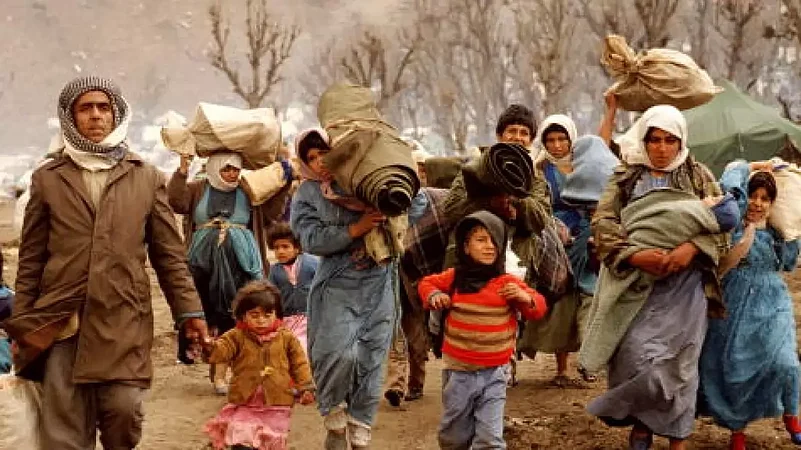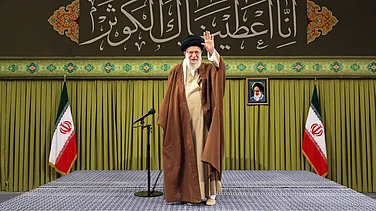Atleast 900 people have reportedly been killed in Israel — a staggering toll on a scale the country has not experienced in decades — and more than 300 have been killed in Gaza, in a fresh round of tensions between the two countries after an unprecedented surprise attack from Gaza last Saturday.
The fresh round of attacks has brought back attention to a recurring bone of contention – the Israeli-Palestinian conflict that has plagued the Middle East for decades. Even after World War II, the Cold War had a significant influence on the Israel-Palestine conflict, shaping the dynamics, alliances, and strategies of both sides. The United States generally supported Israel, providing military aid, diplomatic backing, and economic assistance. The Soviet Union, on the other hand, supported various Arab states, including the Palestine Liberation Organization (PLO) and Arab nations hostile to Israel.
The last 70 decades have witnessed major uprisings, conflicts over territory and religion, between several nations.
Here is a look at some major conflicts after the World War II
Cold War (1947-1991)
The end of the Second World War culminated with the beginning of the Cold War which witnessed geopolitical tensions between the United States and the Soviet Union and their respective allies, the Western Bloc and the Eastern Bloc. The conflict was more ideological and it did not involve direct military conflict between the two main adversaries – hence, it was termed the ‘Cold War’. Instead of direct military confrontation, the superpowers often supported opposing sides in conflicts around the world, leading to proxy wars in places like Korea, Vietnam, Afghanistan, and Central America. On one hand, the end of the war brought about a series of arms reduction treaties and agreements between the United States and Russia (formerly the Soviet Union) that were primarily aimed at reducing the nuclear arsenals of both superpowers; on the other, new security challenges emerged, including non-state actors engaged in terrorism, cyber warfare, and the proliferation of weapons of mass destruction.
Israel – Palestinian War (1948 – present)
The Arab-Israeli war in 1948 was a series of military conflicts between Israeli forces and various Arab forces, following the Israeli Declaration of Independence. In 1949, the newly created State of Israel signed a series of truces with Arab countries that had declared war on it. However, violence has continued in the region. Israel captured the Gaza Strip from Egypt’s control in 1967 and withdrew its troops in 2005. Hamas seized control of Gaza in 2007. Since then, Israel and Egypt have placed a strict siege on the region including air and naval blockades. Before the recent attack, the two sides last fought a war in 2021, which killed at least 250 people in Gaza and 13 in Israel.
Korean War (1950-1953)
The Cold War heated up with the outbreak of the Korean War which was fought between North Korea and South Korea from 1950 to 1953. North Korea, supported by the Soviet Union, invaded the South on 25 June 1950, which was supported by the United States. The three-year bloody war led to the deaths of 3 million people and tens of thousands of injuries. The war ended in an armistice but no formal peace treaty. The Korean Peninsula remains divided to this day.
Vietnam War (1955-1975)
The Vietnam War was a long, drawn out and bloody combat that witnessed a military conflict between North Vietnam (supported by China and the Soviet Union) and South Vietnam (supported by the United States, South Korea, Australia, and several other US allies). Often described as one of the proxy wars of the Cold War, the Vietnam War ended with the capture of the country's capital Saigon by the North Vietnamese Army in April 1975. The number of deaths caused due to the war vary widely as it was only in 1995 when Vietnam released its official estimate of war dead: as many as 2 million civilians on both sides and some 1.1 million North Vietnamese and Viet Cong fighters.
Gulf Wars (January–February 1991 and March–April 2003)
The armed conflict between Iraq and a US-led coalition of two dozen nations were carried out in two key phases: Operation Desert Shield – the military buildup from August 1990 to January 1991; and Operation Desert Storm – the aerial bombing campaign against Iraq on 17 January 1991. The war came to a close with the American-led Liberation of Kuwait on 28 February 1991.
Following the 9/11 Twin Towers Attack that left the United States in a precarious position and Iraq’s alleged continued possession and manufacture of weapons of mass destruction, the then US President, George W Bush in 2002, issued an ultimatum to then Iraqi President Saddam Hussain to leave the country in 48 hours. After Saddam refused to leave Iraq, the US launched a full-scale attack by dropping several precision-guided bombs on a bunker complex in which the Iraqi president was believed to be present. The Bush administration agreed to remove all combat troops from Iraq by the end of 2011.
Ukraine War (2014-present)
The ongoing international conflict between Russia and Ukraine began in 2014. Armed conflict in eastern Ukraine erupted following Russia's annexation of Crimea, which was the first time since World War II that a European state annexed the territory of another. More than fourteen thousand people died in the fighting in the Donbas between 2014 and 2021, the bloodiest conflict in Europe since the Balkan Wars of the 1990s. A fresh war erupted on February 24, 2022, when Russia invaded Ukraine from the North, East, and South. One document quoted by the New York Times said that as of February 2023, Ukraine had suffered 124,500 to 131,000 casualties, with as many as 17,500 killed in action. The invasion has been seen as the biggest attack on a European country since the Second World War.






















